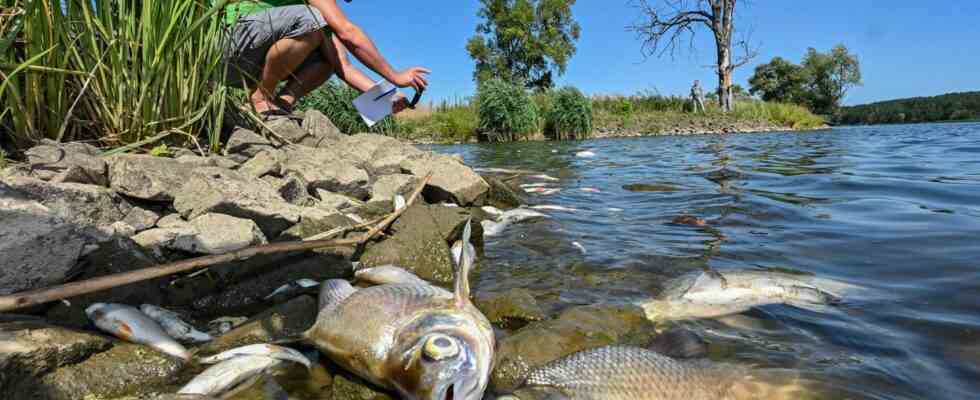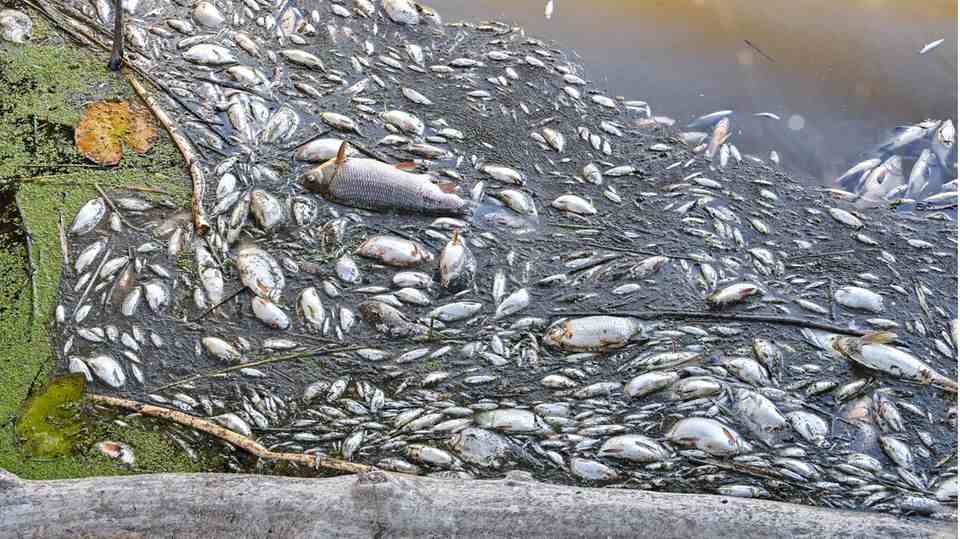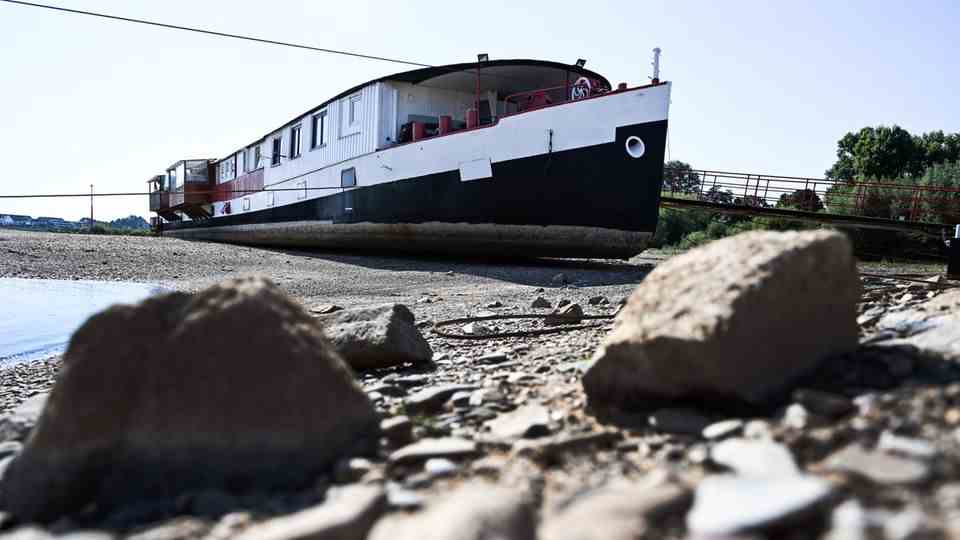environmental disaster
What leads to the death of fish in the Oder? Poland is now ruling out another cause
Schwedt in Brandenburg, Germany. Dead fish float in the water of the German-Polish border river Oder in the Lower Oder Valley National Park north of the city.
© Patrick Pleul / DPA
The search for the cause of the massive fish kill in the Oder continues. Poland now rules out the possibility that mercury and heavy metals could be responsible. But there is a suspicion.
According to the Polish government, the death of fish in the Oder is not due to heavy metals. This would have resulted in further analyzes of dead fish by the State Veterinary Institute, Environment Minister Anna Moskwa wrote on Twitter on Saturday evening. The government in Warsaw had previously ruled out elevated mercury levels as the cause.
However, the analyzes indicated increased salt levels in the water and thus agreed with the findings of the German authorities, Moskwa told the PAP news agency. “The high salinity of the Oder may have activated other toxic substances in the water or in the bottom sediment. The toxicological examination of the fish will help identify any pollutants that contributed to the deaths of the animals.”
According to the Brandenburg Environment Minister Axel Vogel (Greens), the Oder has “very much increased salt loads”. The term salt loads refers to salts dissolved in the water. Poland’s government suspects that the river was poisoned with chemical waste. The Polish police have offered a reward of the equivalent of 210,000 euros for the investigation.
According to the Ministry of the Interior in Warsaw, 2,000 police officers, more than 300 firefighters and 200 soldiers are currently deployed on the banks of the Oder. They help rescue dead fish and warn citizens to avoid contact with the water.
Fish deaths in the Oder: the search for the cause continues
Federal Environment Minister Steffi Lemke admitted to initial problems in cooperation with Poland when investigating the fish kill in the Oder. You have now agreed on better coordination, said the Green politician on Saturday evening during a visit to Frankfurt (Oder) near the border.
In the Oder border area, hundreds of helpers began collecting dead animals. In the small town of Lebus near Frankfurt, the decay caused an unpleasant odor to spread, as a DPA reporter noted. You could also see birds carrying away dead fish. Rescuers wore rubber boots and gloves to protect themselves from direct contact with the water and fish. “I reckon with several tons of fish that we get out,” said Thomas Rubin from the district administration. Around 80 kilometers in length, around 300 helpers are mainly on the road.
Lemke spoke to emergency services from the fire brigade and technical relief organization. She criticized the lack of information from Poland. “The question of German-Polish cooperation obviously didn’t work at this point,” said the minister. “Otherwise we would have received information earlier, at least from the state of Brandenburg or the neighboring municipalities.”
In a first meeting on Friday, she agreed with the Polish Environment Minister Anna Moskwa that there should be a joint assessment by experts and an exchange of the analysis results. Lemke thanked helpers and anglers who quickly drew attention to the dead fish.



